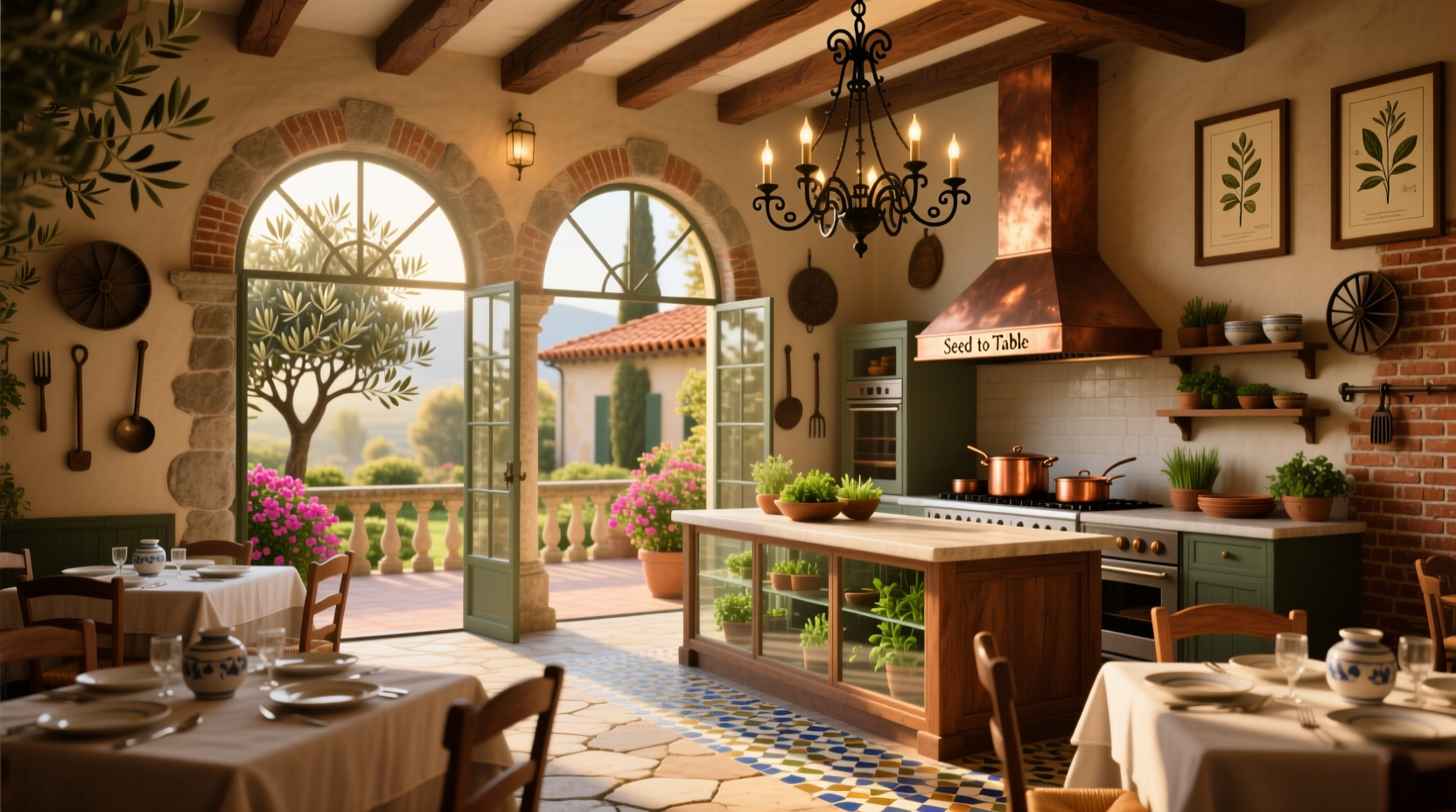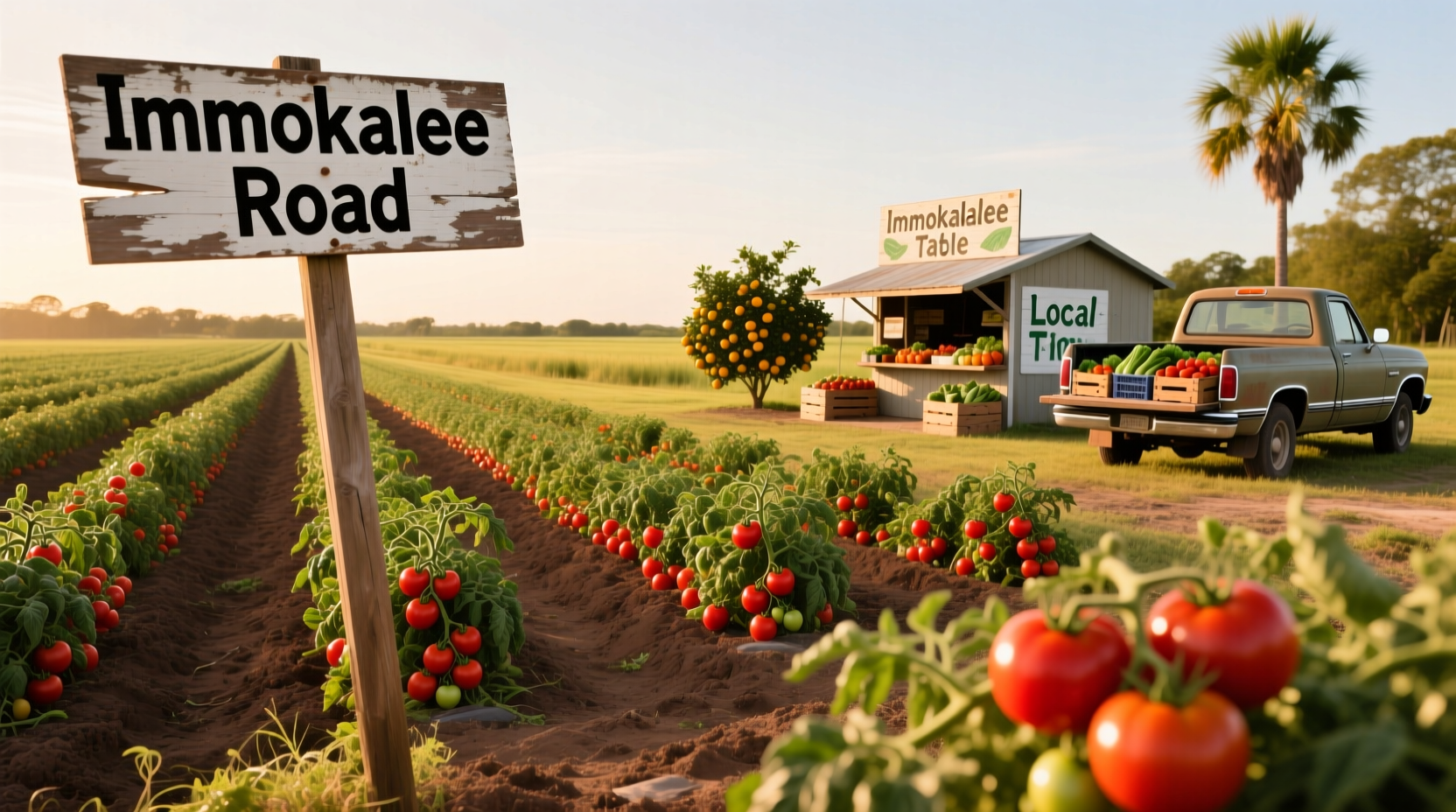Understanding the Seed to Table Concept in Southwest Florida
Seed to Table represents more than just a restaurant name—it embodies a philosophy connecting consumers directly with regional food sources. Unlike typical farm-to-table establishments, this venue operates within the educational framework of the Naples Botanical Garden, creating a unique synergy between horticulture, education, and culinary arts. The restaurant sources approximately 75% of its ingredients from within a 100-mile radius, with many items coming directly from the garden's demonstration plots or partner farms along the Immokalee Road corridor.
The Immokalee Road agricultural corridor has been Southwest Florida's farming heartland for decades. According to the Collier County Agriculture Department, this region produces over $400 million in agricultural products annually, with specialty crops including heirloom tomatoes, citrus varieties, and tropical fruits that regularly appear on Seed to Table's seasonal menus.
Navigating to Seed to Table: Location and Access
Located at 1272 Immokalee Road, Seed to Table sits within the Naples Botanical Garden's main campus. Many first-time visitors make the mistake of looking for a standalone restaurant building, but access requires entering the botanical garden grounds. Here's what you need to know before visiting:
- Garden admission required: Restaurant access includes garden admission ($17.50 for adults, $12.50 for children)
- Parking: Complimentary parking available within the garden
- Hours: Wednesday-Sunday, 11:30am-2:30pm for lunch, 5:00pm-8:30pm for dinner (closed Monday-Tuesday)
- Reservations: Highly recommended, especially for dinner service
| Season | Featured Local Ingredients | Menu Highlights |
|---|---|---|
| Winter (Dec-Feb) | Heirloom tomatoes, citrus, greens | Citrus-glazed local pork, tomato tartare |
| Spring (Mar-May) | Strawberries, asparagus, early squash | Strawberry salad, squash blossom fritters |
| Summer (Jun-Aug) | Mangoes, corn, tropical fruits | Mango ceviche, corn soup, tropical fruit desserts |
| Fall (Sep-Nov) | Pumpkins, sweet potatoes, peppers | Sweet potato gnocchi, roasted pepper soup |
Your Complete Dining Experience at Seed to Table
Understanding what to expect during your visit helps maximize your Seed to Table experience. The journey begins the moment you enter the Naples Botanical Garden, with opportunities to see where some ingredients originate before you even reach the restaurant.
Pre-Dining Garden Exploration
Most visitors spend 30-60 minutes exploring the garden before dining. Key areas to visit include:
- The Florida Garden: Features native edible plants used in regional cuisine
- The Caribbean Garden: Showcases tropical fruits that occasionally appear on dessert menus
- Demonstration Kitchen Garden: Where many restaurant ingredients are grown
Inside the Restaurant
The dining space features floor-to-ceiling windows overlooking garden landscapes, creating a seamless indoor-outdoor experience. The menu changes weekly based on ingredient availability, with servers knowledgeable about each dish's sourcing story. Recent additions to their sustainable practices include a zero-waste initiative that repurposes food scraps into garden compost and creative menu items.

Seasonal Highlights and Menu Evolution
What truly distinguishes Seed to Table is its commitment to seasonal menus that reflect Southwest Florida's agricultural calendar. Unlike restaurants that source globally to maintain consistent menus year-round, this establishment embraces regional seasonality as a culinary feature rather than a limitation.
The Florida Department of Agriculture's Florida Fresh program documents the state's agricultural seasons, which directly influence Seed to Table's offerings. For example, during winter months when Florida produces 95% of the nation's fresh winter tomatoes, the restaurant features multiple tomato preparations highlighting different heirloom varieties from local farms.
Community Impact and Educational Mission
As part of the Naples Botanical Garden, Seed to Table serves an educational purpose beyond dining. The restaurant partners with local farms along Immokalee Road to create a transparent supply chain that visitors can learn about through:
- Monthly "Farmer Spotlight" features highlighting specific regional producers
- Seasonal cooking demonstrations using ingredients grown on-site
- Educational placards describing the journey of featured ingredients
- Partnerships with local agricultural schools for internships
This educational component aligns with research from the University of Florida's Institute of Food and Agricultural Sciences, which shows that farm-to-table restaurants connected to educational institutions increase consumer awareness of regional agriculture by up to 65% compared to standard restaurants.
Planning Your Visit: Essential Tips
Maximize your Seed to Table experience with these practical recommendations:
Timing Your Visit
Weekday visits offer a more relaxed experience, while weekend evenings feature live music during cooler months. The garden closes at 5pm daily, so dinner reservations require entering before closing. For the best garden viewing, schedule lunch during garden hours.
Menu Considerations
With advance notice, the kitchen accommodates most dietary restrictions by leveraging their flexible sourcing model. The restaurant maintains relationships with multiple suppliers for key ingredients, allowing them to substitute items when necessary. Vegetarian and vegan options consistently represent 40% of the menu, reflecting Southwest Florida's diverse agricultural output.
Combining with Garden Activities
Check the Naples Botanical Garden's event calendar for special dining experiences:
- "Harvest Dinners" featuring multi-course meals paired with garden tours
- Seasonal cooking classes with the executive chef
- Farmers' market events on select Saturdays
Why Seed to Table Stands Out in Southwest Florida's Culinary Scene
While many restaurants claim "farm-to-table" status, Seed to Table's integration with the Naples Botanical Garden creates a verifiable connection between source and plate. The transparent supply chain—where visitors can literally see ingredients growing before dining—sets a standard for authenticity in regional cuisine.
According to the James Beard Foundation's Local Food Systems Initiative, restaurants with demonstrable connections to their ingredient sources increase consumer trust by 78% compared to those making generic local claims. Seed to Table's model exemplifies this principle through its garden integration and detailed sourcing information.
Frequently Asked Questions
Do I need to pay garden admission to eat at Seed to Table?
Yes, access to Seed to Table requires standard garden admission ($17.50 for adults, $12.50 for children), which is included in your dining reservation. This admission grants you full access to the Naples Botanical Garden before or after your meal.
How far in advance should I make a reservation for Seed to Table?
Reservations are recommended at least 2-3 weeks in advance for weekend dinners, especially during peak season (December-April). Weekday lunch reservations can typically be made 3-5 days ahead. Same-day reservations are occasionally available but not guaranteed.
Are ingredients actually grown on-site at the Naples Botanical Garden?
Approximately 25% of ingredients come directly from the garden's demonstration kitchen plots, including herbs, edible flowers, and select vegetables. The remaining ingredients are sourced from partner farms within 100 miles, primarily along the Immokalee Road corridor and other Southwest Florida agricultural areas.
Does Seed to Table offer cooking classes or garden tours?
Yes, the restaurant partners with the Naples Botanical Garden to offer seasonal cooking classes and guided garden tours that focus on food-producing plants. These events typically occur on weekend mornings and require separate registration through the garden's education department.
Is Seed to Table accessible for visitors with mobility challenges?
The restaurant and surrounding garden pathways are fully ADA-compliant. Wheelchair-accessible tables are available, and the garden offers complimentary wheelchair and scooter rentals. The restaurant staff is trained in accessibility protocols and can accommodate special seating requests with advance notice.











 浙公网安备
33010002000092号
浙公网安备
33010002000092号 浙B2-20120091-4
浙B2-20120091-4